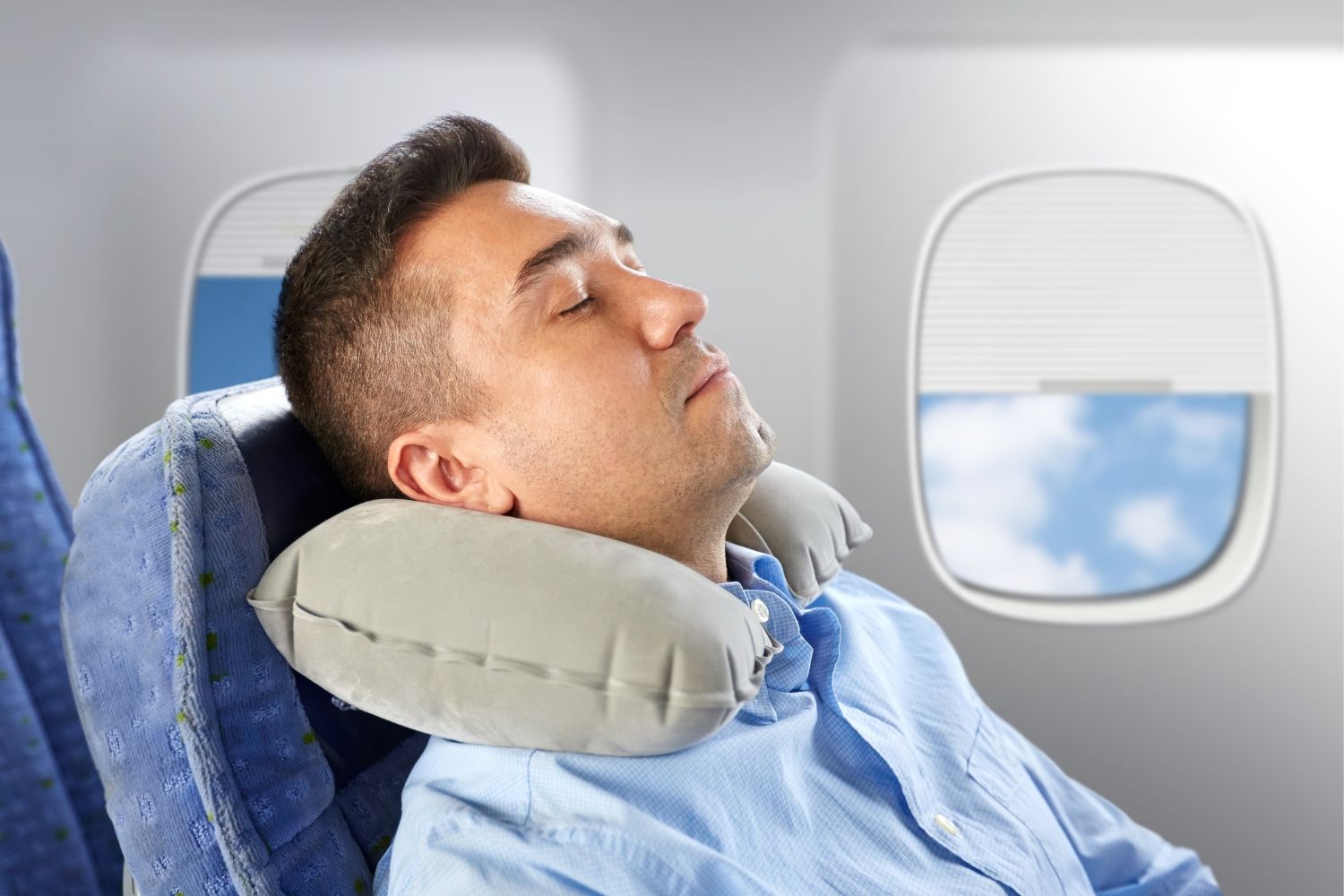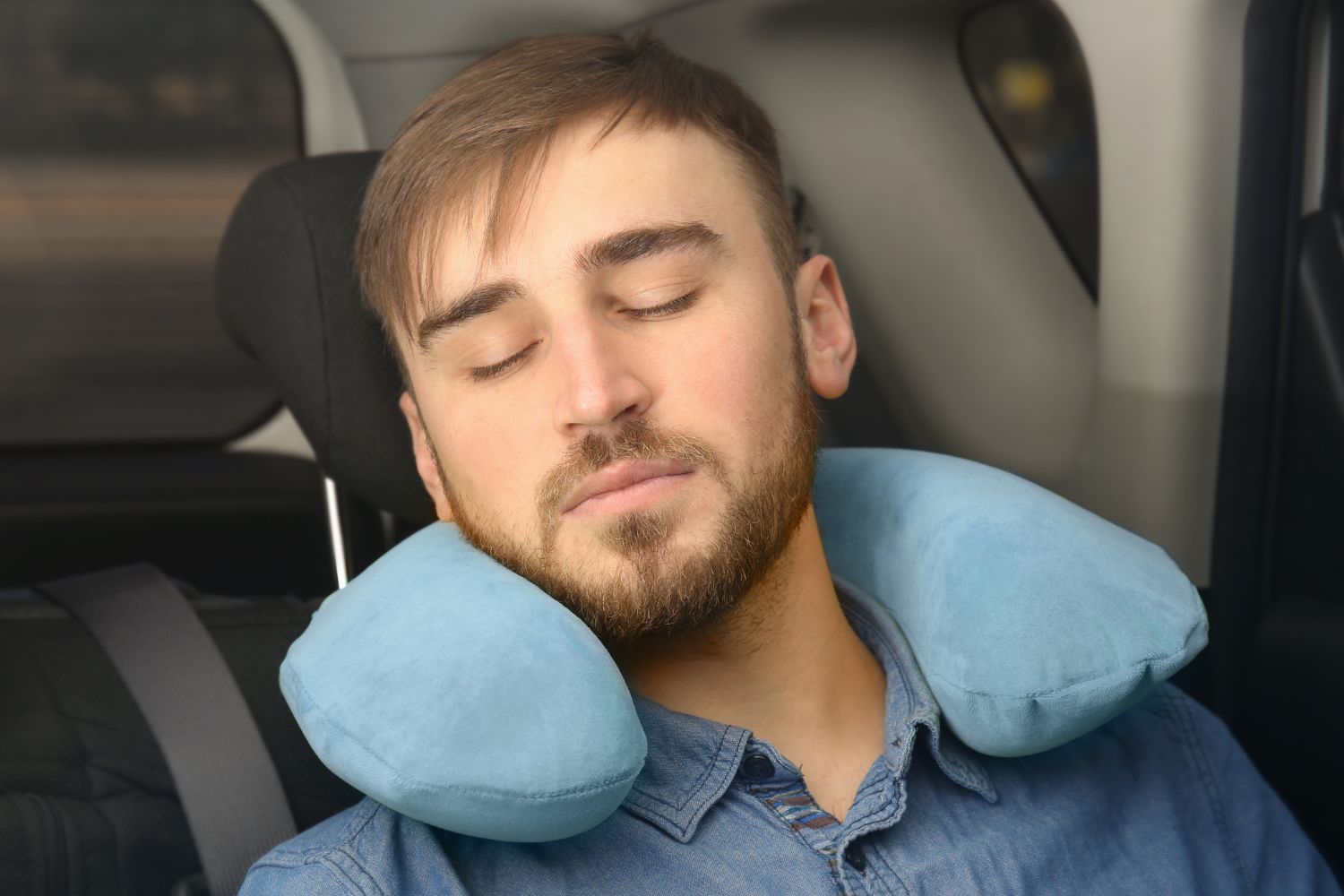
Drowsiness or fatigue has been identified as a principal cause in at least 100,000 police-reported traffic crashes each year. Jet lag is one of the 84 known or suspected sleep disorders that impact millions of people each year. Sleep can affect travel, and travel can affect sleep.
Road travel and drowsiness
Some call driver fatigue a ‘silent killer’ because crashes due to drowsy-driving and falling asleep are underreported, state reporting practices are inconsistent and self-reporting is unreliable. Most researchers and traffic safety officials believe the statistics of drowsy driving are significantly higher than reported because of these reasons.
Before hitting the highway, especially for a long trip, you should:
- Get a good night’s sleep. While this varies from individual to individual, sleep experts recommend between 7-9 hours of sleep per night for adults and 8.5-9.5 hours for teens.
- Plan to drive long trips with a companion. Passengers can help look out for early warning signs of fatigue or switch drivers when needed. Passengers should stay awake to talk to the driver.
- Schedule regular stops every 160 km or every 2 hours.
- Avoid alcohol and medications (over-the-counter and prescribed) that may impair performance. Alcohol is associated with increased fatigue.
- Consult a physician or a local sleep disorder centre for diagnosis and treatment before your trip if you suffer from frequent daytime sleepiness, have difficulty sleeping at night and/or snore loudly every night.

Air travel and jet lag
Anyone who has ever flown is likely to have experienced some degree of time zone change disorder, commonly known as jet lag. This occurs when the body’s biological clock is out of sync with local time. The result is that we feel excessively sleepy during the day or wide awake at night.
People may experience jet lag in varying degrees. In general, the severity of jet lag symptoms is directly related to the number of time zones crossed by a flight. Symptoms can include daytime sleepiness, night time alertness (insomnia), loss of appetite and other gastrointestinal dysfunctions, mood disturbances and difficulty concentrating or focusing.
The following are additional steps you can take to minimise jet lag:
- Shift your sleep time before you travel. In the few days before traveling west, go to bed and wake up 1 hour later each day. In the few days before traveling east, go to bed and wake up 1 hour earlier each day.
- Regulate your light exposure before you travel. In the few days before traveling west, seek evening light and avoid morning light. In the few days before traveling east, seek morning light and avoid evening light.
- Regulate your light exposure in your new time zone. If you travelled west, on arrival, seek morning light and avoid afternoon light. If you travelled east, on arrival seek evening light and avoid morning light.
- Avoid alcohol and caffeine for at least 3-6 hours before bedtime.
- Avoid heavy exercise close to bedtime.
- Bring earplugs and blindfolds to reduce noise and light while sleeping.
